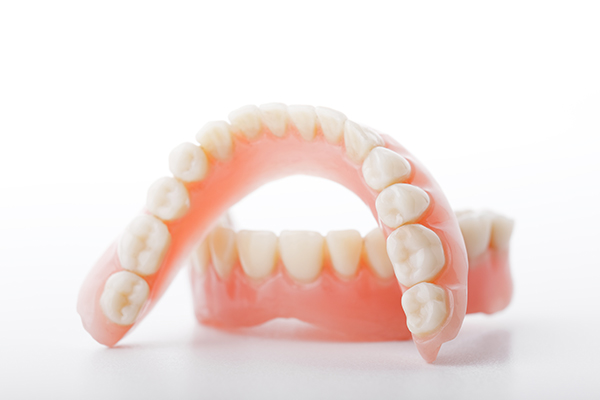 When it comes to oral care, it is just as important to clean dentures as it is natural teeth. After all, both can develop many of the same problems like plaque buildup and staining. At the same time, dentures require a little bit of special care.
When it comes to oral care, it is just as important to clean dentures as it is natural teeth. After all, both can develop many of the same problems like plaque buildup and staining. At the same time, dentures require a little bit of special care.
One thing some people worry about has to do with dentures drying out. Keep reading to find out what you can do if that happens.
What causes dentures to dry out?
This can occur for several reasons. For example, if someone’s mouth does not produce a sufficient amount of saliva, that could become a problem. Leaving dentures lying out for an extended period can also lead to drying. Not soaking them each night is yet another possibility.
What happens when dentures dry out?
It all depends on the level of dryness involved. As an example, if a set of dentures dries out completely, the acrylic material becomes brittle. When that happens, the dentures could crack or split. That means an individual would have to get a new set as the old one would no longer work.
Another issue when dentures dry out is that they can lose their shape. When someone first gets dentures, a dental laboratory uses specific information provided by the dentist to ensure that patients have the right fit. Even a slight deviation can cause dentures to slip or rub against the gums. Over time, the rubbing can lead to irritation, pain, swelling, and even infection.
If a set of dentures are totally dry, they are also at risk for shattering if dropped. In that case, a person’s dentures become useless. These are just a few examples of why it is so important to keep dentures properly moistened. Ultimately, a patient will enjoy a comfortable fit and have dentures that last a long time.
Is it possible to fix dry dentures?
Fortunately, it is possible and often easier than imagined. If someone’s dentures were only out and not soaking for a few hours, reinserting them in the mouth can correct the problem. For this, a person’s saliva does the trick in rehydrating them. While this might take a little bit of time, it usually works.
Another way to fix dry dentures is to place them in water. Allowing them to soak for about 24 hours is usually all it takes. During the soaking period, the dentures rehydrated. Sometimes, this happens much faster than the standard 24 hours.
When to see a dentist
If you tried to fix dried out dentures but without any luck, contact your dentist. You never want to apply heat or even use hot water as both of these can cause permanent damage. Sometimes, a dental lab can make the necessary correction. If not, you might need a new set. To determine this, you should make an appointment so that your dentist will check the dentures for damage and proper fit.
Related Posts
Dentures can be the perfect solution for missing one or multiple teeth. After all, your smile says a lot about you. The first thing a new acquaintance may notice about you is your teeth, and you want that first impression to be a pleasant one. Dentures can help restore your smile, but it's important that…
There are many treatments available to restore missing teeth, but dentures are among the most common. They consist of appliances that are usually removable and consist of a base of hard acrylic or metal that supports artificial teeth. Their purpose is to restore oral function so that you can talk and eat more or less…
Getting dentures is the most affordable way to restore lost teeth. These removable dental replacements are easy to acquire as well. Upper and lower dental replacements are custom-fit. Your dentist can recommend them under the right conditions. If you want to know when dentures can replace missing teeth, here are the details.Dental implants are the…
